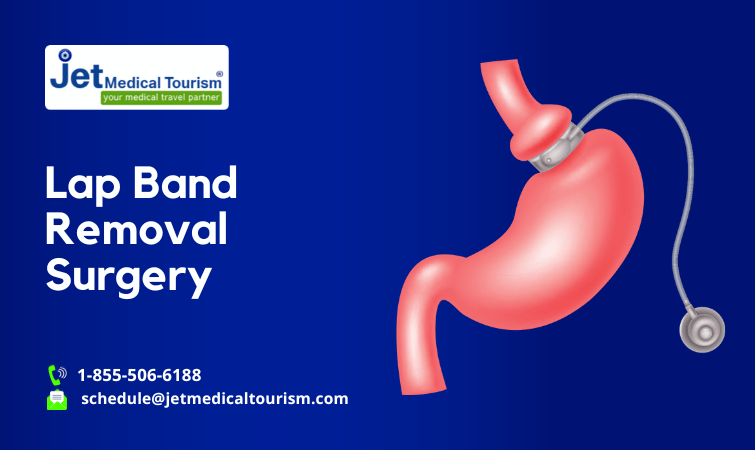Indications For Bariatric Surgery

Bariatric surgery is now widely accepted as a safe and effective way to eliminate obesity and control co-morbidities. However, weight loss surgery is not for everyone. If you are contemplating this procedure, you should know the indications for bariatric surgery. An experienced weight loss surgeon can educate you about the key indications and determine whether you qualify for this procedure.
Different types of bariatric surgeries may be appropriate for different patients. For example, sleeve gastrectomy indications in your case may differ from gastric bypass surgery indications. Therefore, even if you are a sensible candidate for bariatric surgery, it’s critical to evaluate which type of bariatric procedure will be more appropriate for you.
Contact Jet Medical Tourism® Today.
What are the indications for bariatric surgery?
Indications for bariatric surgery are based primarily on two factors: (a) the patient’s body mass index (BMI); and (b) the presence of any obesity-related medical conditions. The surgeon’s first objective in this procedure is to ensure that the candidate should not be an excessive risk, and the potential benefits of weight loss surgery should significantly exceed the potential risks.
- BMI 40 kg/m2 or higher: If your BMI is at least 40 or more, you may qualify for a weight loss surgery with or without the presence of co-morbidities. However, any specific contraindications for gastric sleeve or contraindications to gastric bypass surgery could disqualify you.
- BMI 35 to 39.9 kg/m2: If your BMI ranges between 35 and 40, and you are suffering from one or more obesity-related health conditions, such as type 2 diabetes, fatty liver disease, obstructive sleep apnea or hypertension, you could clear the indications for bariatric surgery.
- BMI 30 to 34.9 kg/m2: In some cases, the bariatric surgeon may accept patients with a relatively low BMI between 30 and 34.9 as candidates for gastric sleeve or gastric bypass surgery. These candidates will clear the indications for bariatric surgery, particularly if they have co-morbidities.
RELATED: Bariatric surgery requirements: Do I qualify for weight loss surgery?
Sleeve gastrectomy indications
The most basic of gastric sleeve indications is that you have a BMI of 40 or higher. In general, people with an excess body weight of about 100 to 125 pounds may have this BMI. Your bariatric surgeon may also consider you as a candidate if your BMI is between 35 and 40, but you suffer from one or more co-morbidities that are linked to your obesity. VSG in many cases may also be indicated for those with a BMI of 30 or above.
Pre-Surgery medical evaluation
In addition to the basic BMI and co-morbidity assessment, your weight loss surgeon will perform a detailed pre-op health evaluation to determine your sleeve gastrectomy indications. A systematic review of your medical history as well as a physical exam will be a part of the evaluation. In some cases, the surgeon may also order a few pre-op diagnostic tests to make sure you are suitable for gastric sleeve surgery.
Psychological and emotional evaluation
People suffering from obesity may be at a greater risk of psychopathological conditions, such as anxiety disorder, social phobia, depression, somatization, substance abuse, PTSD or OCD. As part of your sleeve gastrectomy indications, your bariatric surgeon may require a professional standardized assessment of your mental and emotional health parameters. This will ensure you do not have post-surgery sub-optimal outcomes.
RELATED: BMI for gastric sleeve surgery
Sleeve gastrectomy contraindications
Absolute contraindications for gastric sleeve are non-existent, but relative contraindications must be considered while determining candidacy. To identify any potential sleeve gastrectomy contraindications, your surgeon will assess your medical history and perform a physical examination. Depending on your risk profile, your surgeon may also order diagnostic tests such as chest x-ray, EKG, blood and urine tests, and gastroscopy.
Some of the prominent gastric sleeve surgery contraindications may include:
- End-stage respiratory disease
- Severe heart ailment
- Active treatment for cancer
- Portal hypertension
- Acute coronary artery disease
- Untreated schizophrenia
- Alcohol/drug dependency or abuse
- Impaired mental capacity
- Any identified contraindications to general anesthesia
- Pregnancy
- Age below 18 years
Gastric bypass surgery indications
The standard indications for bariatric surgery will usually also apply to gastric bypass. However, one of the specific gastric bypass surgery indications is when the patient has a BMI of 35 or higher and suffers from poorly controlled type 2 diabetes. For these patients, a laparoscopic Roux-en-y gastric bypass is usually a strong indication. If your BMI is less than 35 without co-morbidities, you may be indicated for gastric sleeve rather than gastric bypass.
CHECK THIS: Gastric sleeve vs gastric bypass
Medical and laboratory evaluation
To ensure that you clear all the indications for gastric bypass surgery, your surgeon will carry out a thorough medical and lab evaluation. The protocol is not very different from that of a standard abdominal surgery. A systematic review of your medical history and a physical exam will be followed by lab tests, such as metabolic profile, complete blood count, lipid profile, coagulation profile, and a thyroid function test.
Nutritional assessment and education
Gastric bypass surgery will reduce your body’s nutrient absorption. Therefore, you will have to use nutrition supplements lifelong to maintain good health. To determine your gastric bypass indications, your surgeon may order vitamin soluble level tests and vitamin B12 test. They will also educate you with regard to your post-op eating and nutrition behaviors, and take into account your commitment to follow their dietary guidelines.
RELATED: Gastric bypass requirements
Contraindications to gastric bypass surgery
Gastric bypass contraindications must be carefully assessed to ensure patient safety. Depending on your medical history and physical examination, your surgeon may order a cardiovascular assessment to diagnose unstable coronary artery disease. If they suspect gastric pathology, they may order an endoscopy. Chest x-ray and pulmonary function test may be required to identify any respiratory contraindications to gastric bypass surgery.
Some of the major gastric bypass surgery contraindications may include:
- Active cancer treatment
- Occult coronary artery ailment
- Liver cirrhosis
- Severe Crohn’s disease or esophagitis
- End-stage lung disease
- Portal hypertension
- Chronic pancreatitis
- Long-term steroid treatment
- Untreated infection in the surgical area
- Pattern of poor adherence to medical guidelines
- Established suicidal tendencies or uncontrolled psychiatric illness
- Poor tolerance to general anesthesia
Final words on bariatric surgery indications
Clinical indications for bariatric surgery are critical to determine whether you are a good candidate for this procedure. The right starting point is to find a skilled and dedicated weight loss surgeon who will perform a comprehensive evaluation and take steps to minimize your surgical risks. Surgeons that maintain the highest professional ethics and follow best medical practices will be upfront with you if you have any contraindications to bariatric surgery.
For your own safety, you should make sure to select a dependable surgeon who can objectively assess your indications for bariatric surgery and make the right recommendations to help you meet your weight loss goals. If any contraindications are found, the surgeon will help you go through the medical treatment process to overcome them and then go ahead with a safe and effective weight loss surgery.



